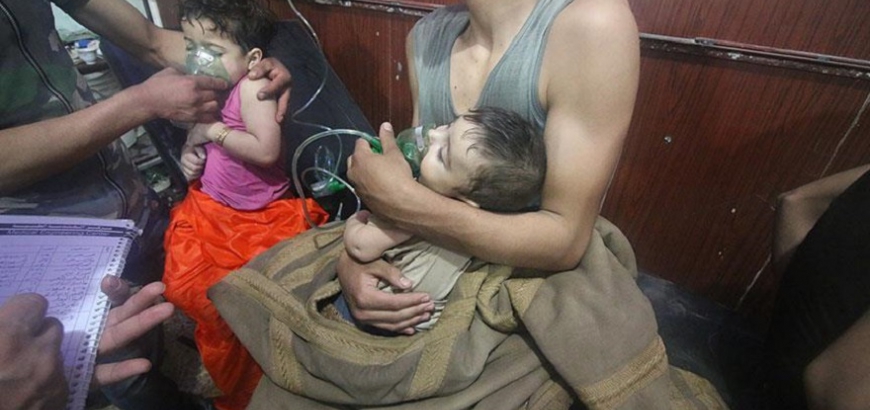Dr. Fahad Mohiddeen, who was the only neurosurgeon in Damascus' Eastern Ghouta during its siege by the Assad regime and its allies, discussed the tragic conditions which he endured with the enclave's residents because of the siege and the lack of the most basic life necessities, especially after the regime tightened its siege on the area over the last four months.
Mohiddeen said that since 2012 he had been the only neurosurgeon in the Eastern Ghouta, before he was forced to leave recently along with the other displaced.
He said that his mission in the Ghouta became more difficult recently because of the fierce bombardment, rubble and the closing of the roads between residential districts.
He added: “There were many cases that won’t leave my mind, including in the beginning of March, when I received a message about an epidural hemorrhage resulting from a young man’s injury, but at the time the Civil Defense could not bring him to Hamouriya because of the severe bombing.”
The doctor continued: “After a number of attempts the next morning, the Civil Defense managed to transport the young man to the operating area in the Al-Quds hospital, but the patient had already entered the state of brain death.”
He said that in cases like this it would have been possible to save the young man and return him to his family and children with a simple operation, but there was no way to offer this medical assistance at the appropriate time, which led to him entering a state of brain death, followed by death.
Mohiddeen said that there was a special case that did not leave his mind, represented in the injury of a child named Moatassim, who was saved alone from among three children from severe bombardment, where he had a severe injury in the occipital area responsible for vision.
He said that a hemorrhage in the child’s brain led to damaging the area responsible for vision, and therefore he became fully and permanently blind because of the lack of necessary technology to deal with these cases.
Mohiddeen noted the story of the infant Karim, 40 days old, who lost his left eye, suffered a fracture in his skull and lost his mother during a regime bombing on the town of Hamouriya in the Eastern Ghouta.
The Syrian doctor said that Karim was with his mother, who was hit directly by a bomb from a Russian aircraft, while the child suffered a very severe injury that included most of the left side of his face, with heavy loss of the left frontal bone and a large segment of the brain material exiting the brain.
He said that his team brought Karim into the operating room where they stopped the bleeding and carried out a reconstructive operation, which lasted roughly four hours.
Karim, whose story and images were published, met a large response on social media after a campaign started by activists in solidarity with him.
The campaign spread to include major official personalities, humanitarian organizations and media around the world, turning Karim into a symbol of the suffering of the Eastern Ghouta.
This article was translated and edited by The Syrian Observer. Responsibility for the information and views set out in this article lies entirely with the author.


